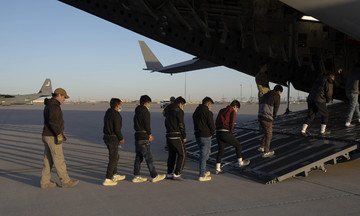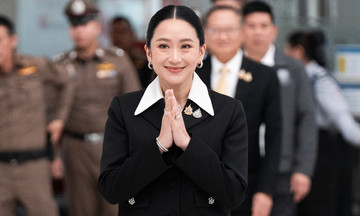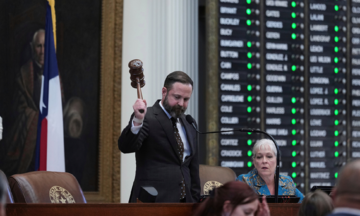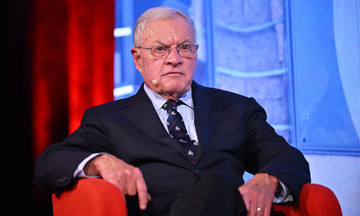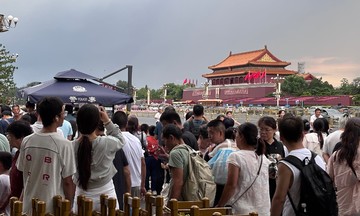On 9/7, former US President Donald Trump announced a 50% retaliatory tariff on Brazil, effective from 1/8. This represents a substantial increase from the 10% proposed in early April and has significantly strained US-Brazil relations.
The move surprised many, as Brazil is one of the few countries with which the US enjoys a trade surplus – a factor Trump typically considers when imposing tariffs. Observers believe this action is intended to exert economic and political pressure on Brazil to protect his ally, former President Jair Bolsonaro.
"50% is still much lower than needed to level the playing field, which we must have with your country," Trump posted on Truth Social. "This is to rectify the serious injustices of the current administration. The way Brazil is treating Mr. Bolsonaro is an international disgrace."
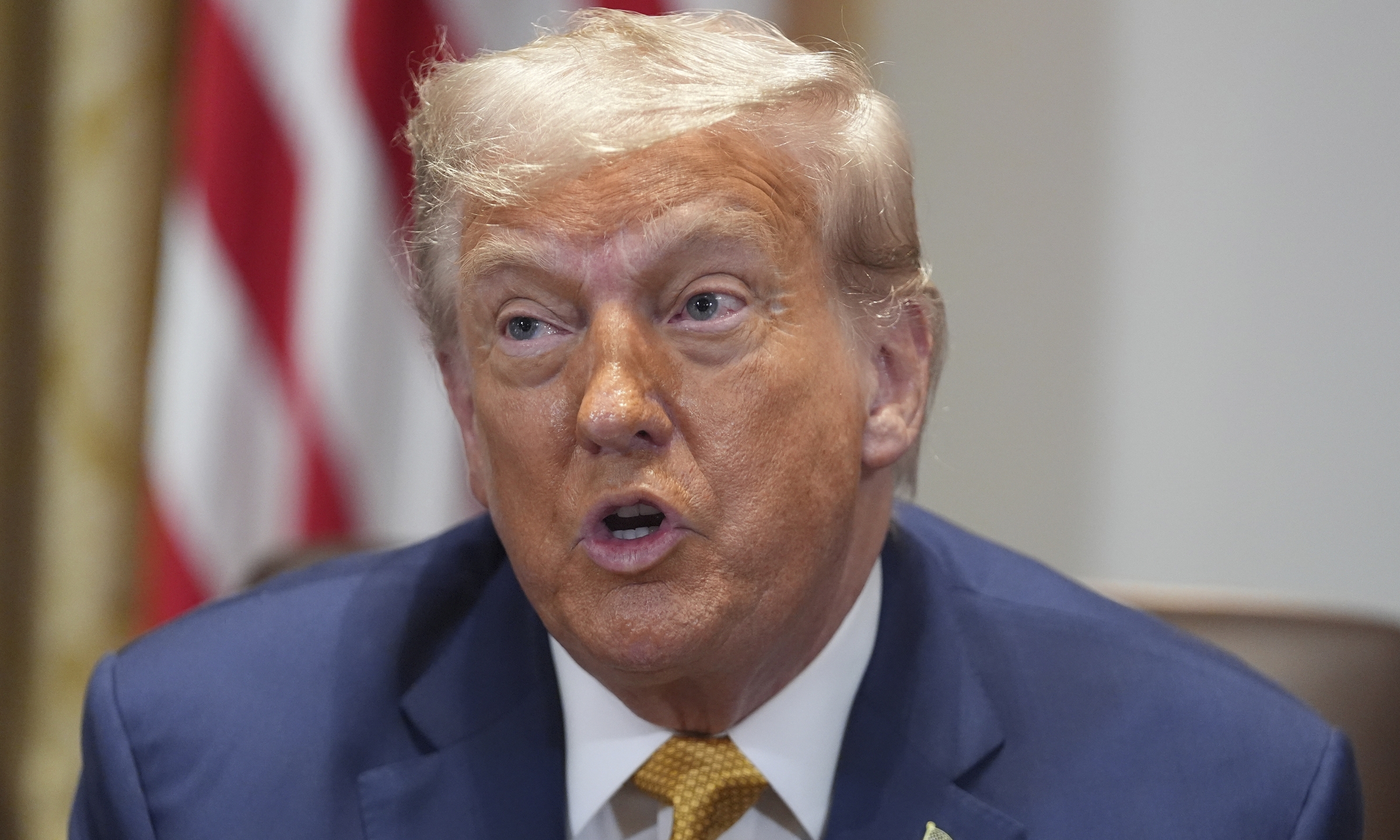 |
Former President Donald Trump during a cabinet meeting at the White House on 8/7. Photo: AP |
Former President Donald Trump during a cabinet meeting at the White House on 8/7. Photo: AP
Bolsonaro, 70, a right-wing politician, served as Brazil's president from 2019 to 2022. Considered a Trump ally during his first term, Bolsonaro shares many similarities with the former US president. He lost to leftist opponent Luiz Inacio Lula da Silva in the 2022 election but refused to concede, alleging voting machine malfunctions.
Following Lula's inauguration in January 2023, thousands of Bolsonaro supporters stormed the presidential palace, Congress, and Supreme Court in Brasilia in protest.
Brazilian prosecutors have accused Bolsonaro of plotting a coup to retain power after his electoral defeat. They also allege his involvement in a plan to assassinate Lula and Supreme Court Justice Alexandre de Moraes. The Supreme Court questioned Bolsonaro last month. He denies all accusations. The trial is expected to begin later this year.
Eduardo Bolsonaro, 41, Bolsonaro's son and a Brazilian congressman, has been seeking support from the White House since March. He has taken frequent leaves of absence to visit Trump's Mar-a-Lago resort in Florida, meeting with Trump confidants.
Eduardo has argued that a Brazilian Supreme Court justice wants to imprison him and his father simply for challenging "a stolen election." After months of effort, Eduardo seems to have gained Trump's sympathy.
"This is no different from attacking a political opponent, which I know very well!" Trump stated on 7/7. "It happened to me, ten times over."
Eduardo said he urged senior White House officials to sanction de Moraes, the justice overseeing Bolsonaro's case. Trump opted for a broader approach, imposing the 50% tariff on all Brazilian goods entering the US in response to what he calls a "witch hunt" against Bolsonaro.
"The shift from sanctioning a judge to targeting all Brazilian goods was Trump's own decision," according to two sources familiar with the matter. This move suggests Trump's willingness to use tariffs for "political point-scoring."
Elizabeth Johnson, an analyst at TS Lombard, a strategic and political research firm, agrees. She noted that Trump typically uses tariffs to reduce trade deficits, while Brazil is one of the few countries with which the US has a surplus, estimated at 7 billion USD in 2024.
"The decision is highly political. It's part of the Bolsonaro family's effort to persuade Trump to intervene in the former Brazilian president's trial," Johnson told Al Jazeera.
This isn't the first time Trump has used tariffs for political leverage. He previously threatened a 25% tariff on Colombian goods, doubling it if the country didn't accept deported undocumented immigrants. Bogota subsequently agreed to Washington's request.
"I love it," Steve Bannon, Trump's former advisor, said in an interview on 10/7. Bannon has long advocated for Trump to target de Moraes, though he hadn't considered tariffs. "The way out of this crisis for Brazil is very simple. Stop the prosecution and drop the charges against Bolsonaro, and the tariffs will disappear."
Trump also accused the Brazilian government of "attacking free elections and basic free speech rights of Americans," including censoring "US social media platforms." He criticized the Brazilian Supreme Court's ruling last month that social media companies can be held liable for content posted on their platforms.
Elon Musk's X was banned in Brazil in 2024 for refusing to remove certain accounts, mostly belonging to Bolsonaro supporters. Trump Media & Technology Group, which operates Truth Social, sued de Moraes in February for "acting beyond his authority and violating free speech rights guaranteed by the US Constitution."
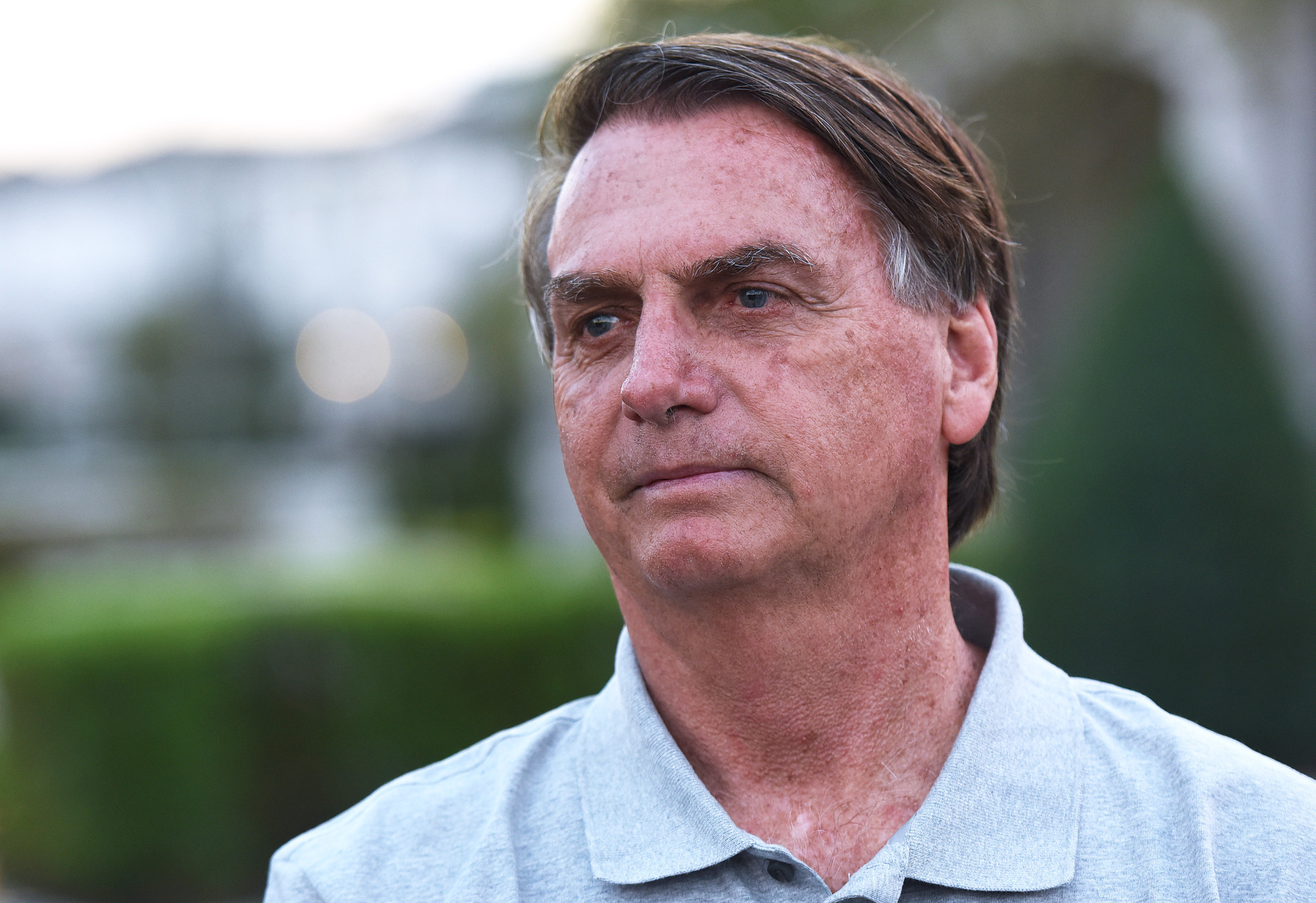 |
Former Brazilian President Jair Bolsonaro in Kissimmee, Florida, in January 2024. Photo: AFP |
Former Brazilian President Jair Bolsonaro in Kissimmee, Florida, in January 2024. Photo: AFP
These developments have further strained US-Brazil relations. President Lula has vowed to retaliate if Trump maintains the 50% tariff.
"Brazil is a sovereign nation with independent institutions and will not accept any form of patronage," Lula posted on X. "Any unilateral tariff increase will be met with Brazil's Reciprocal Economic Law."
While the tariffs put pressure on Lula, they also present an opportunity to strengthen his position before the October 2026 election, while Bolsonaro is barred from running until 2030. A May poll showed 55% of Brazilians dislike Trump, meaning any right-wing candidate Bolsonaro endorses risks losing support in next year's election.
"Politically, this is a gift to the Brazilian government, as Lula faces unfavorable poll numbers," a Brazilian foreign ministry official told the Washington Post. "This could be a turning point for next year's election."
Nhu Tam (According to BBC, Washington Post, Al Jazeera)



